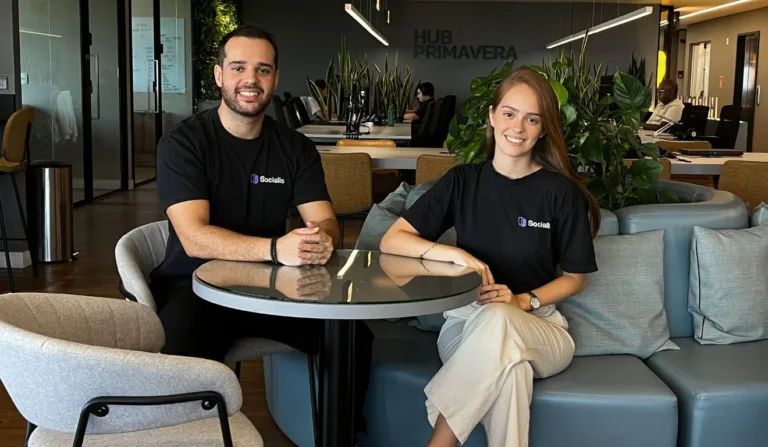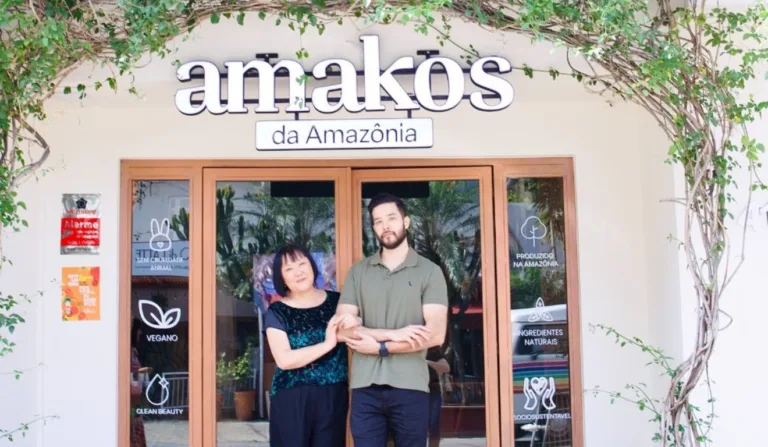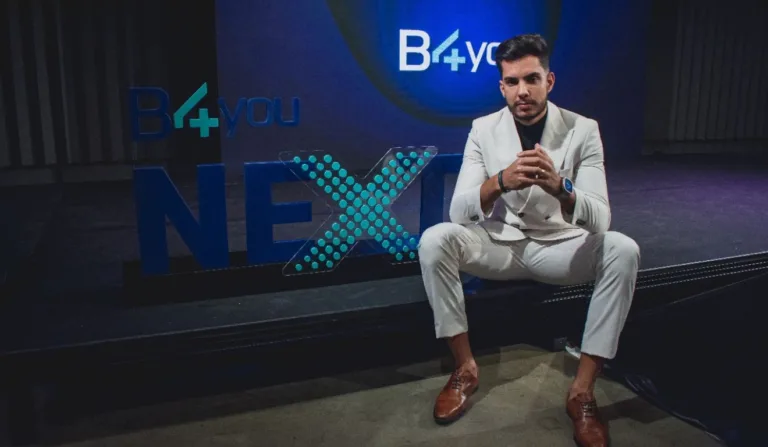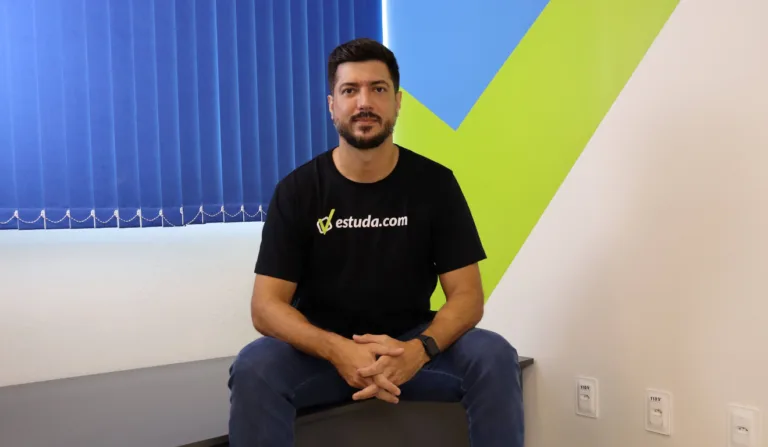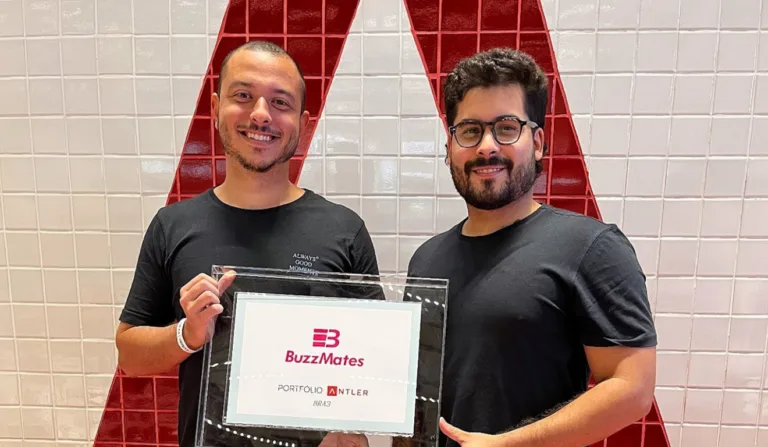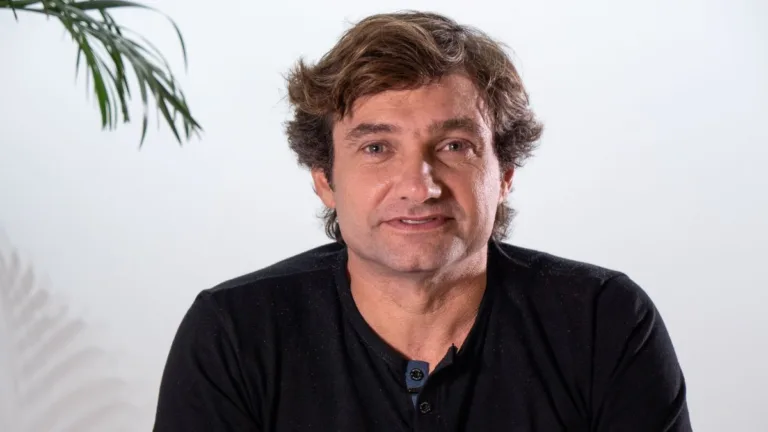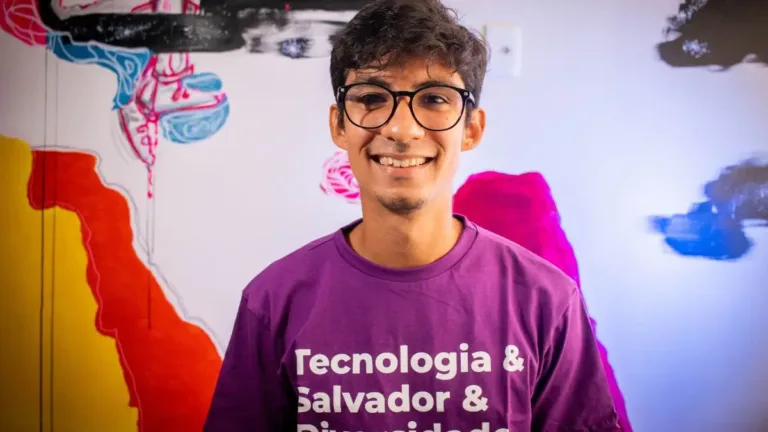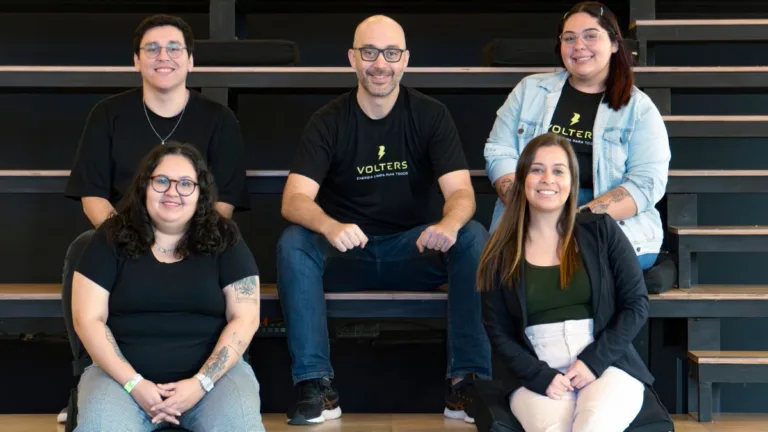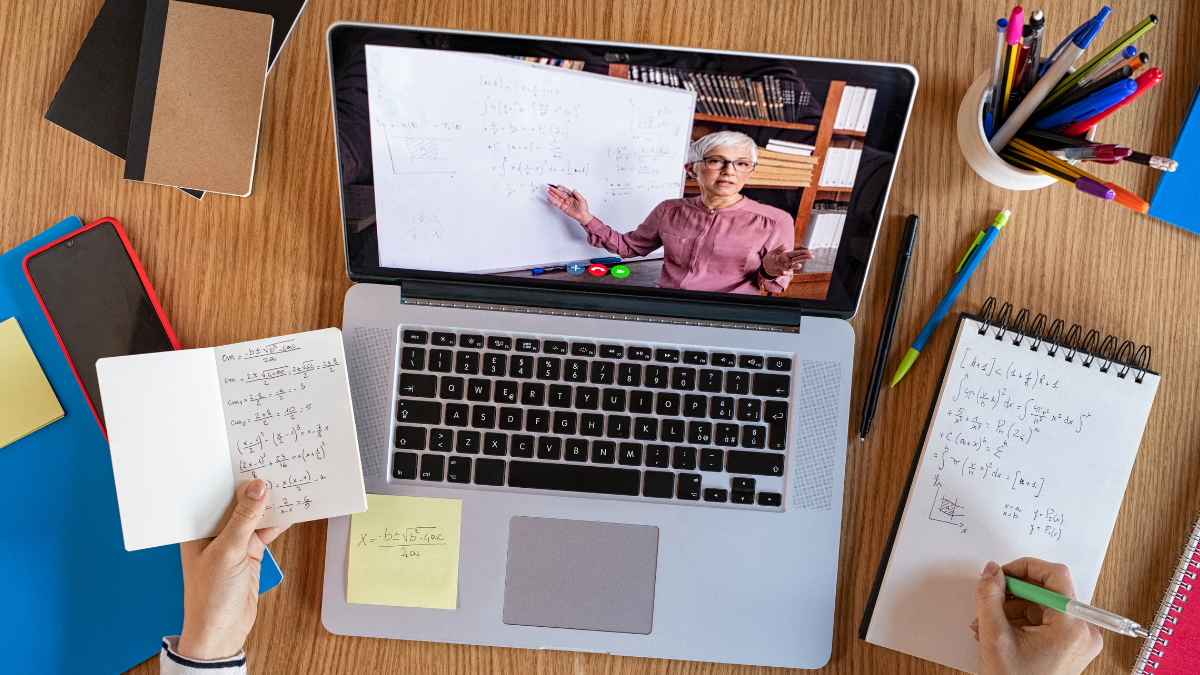
Essa notícia está disponível em português
In 2022, all Brazilian public and private schools will officially begin to implement the so-called New High School model – a reformulation announced in 2017 that amends the national educational guidelines. However, what should have been something simple became a headache for school managers, with many struggling to implement the changes.
But someone in Lagoa Santa, a town in the Brazilian state of Minas Gerais, sought to address the issue. So at the tender age of 25, entrepreneurship teacher Gabriel Gonçalves decided to create a solution for schools to adapt to the new teaching model more smoothly and at a lower cost.
In 2021, Gonçalves raised 150,000 Brazilian reais ($32,000) and founded ICE Play, the country’s first edtech for high schools focused on skills for the future. By the way: ICE stands for Innovation, Creativity, and Entrepreneurship.
The startup developed a video streaming service with creative lessons designed for students to connect with their vocations. And what does this have to do with the New High School? One of the changes is related to a new type of class.
According to the new national guidelines, of the 3,000 hours of classes over the three years of high school, 60% will be traditional content (with subjects such as Portuguese, Maths, and History), and 40% will be new content (a new area dubbed Training Itineraries). That’s where ICE Play comes into, well… play.
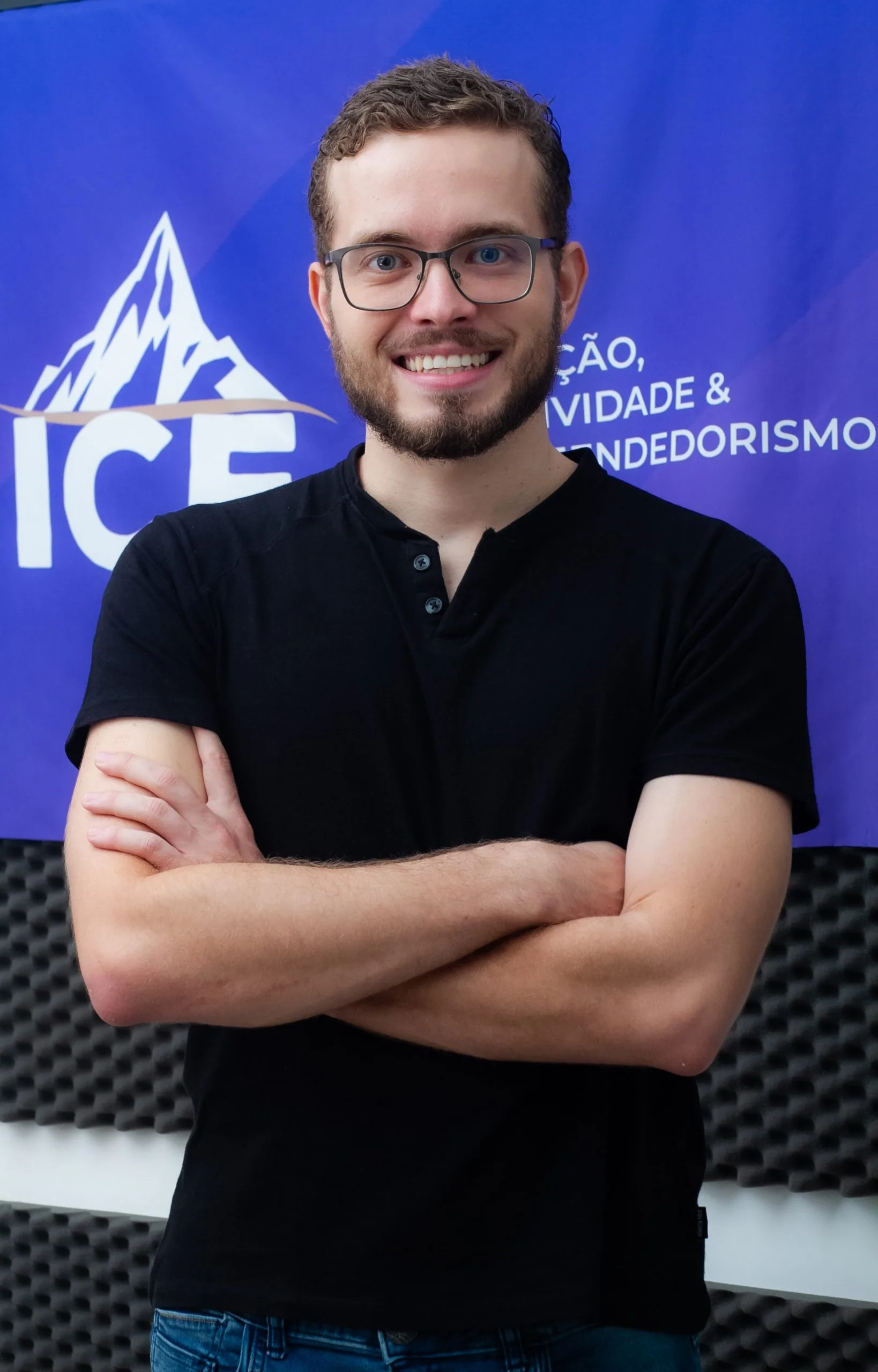
In addition to thinking about new content distributed in 4 themes (entrepreneurship, creative process, scientific research, and sociocultural intervention), schools also have to provide students with options to choose from.
But, for example, how can a small school based in a more precarious region handle the few students it has in several classrooms and invest resources in hiring specialized teachers?
“In the New High School scheme, there is the possibility of delivering part of the content online. So we killed two birds with one stone there. We allow schools to have an incredible and attractive disciplinary grid for their students, and we also offer the option of choosing in a digital environment”, saidGonçalves.
In practice, while also sparing the school from having to hire new teachers, the ICE Play platform ends up being a tool for attracting new students.
How ICE Play engages students using technology
Let’s get real. We are dealing with a generation that struggles to engage with classes. A generation that is plugged 24/7 into various “distractions” such as TikTok, Netflix and YouTube. Gonçalves accepts that ICE Play competes with these platforms. After all, we’re talking about digital content.
“A digital class with just a teacher talking to a camera is not enough. We create content with great editing, animations, and background music. These are short and dynamic classes”, he said.
The edtech also bets on data analysis to constantly improve its content. To do that, Gonçalves has summoned the help of his technology director and co-founder, André Elias. He previously worked as a data analyst at Hotmart, another Brazilian platform specializing in on-demand content.
ICE Play currently offers ten high school courses (5 per semester), based on quantitative and qualitative research carried out as part of a pilot project conducted last year. The product was tested with three private schools and 300 students – with a learning rate of 80.6%. Some of the courses focus on financial education, website programming, public speaking, and new media, among other options.
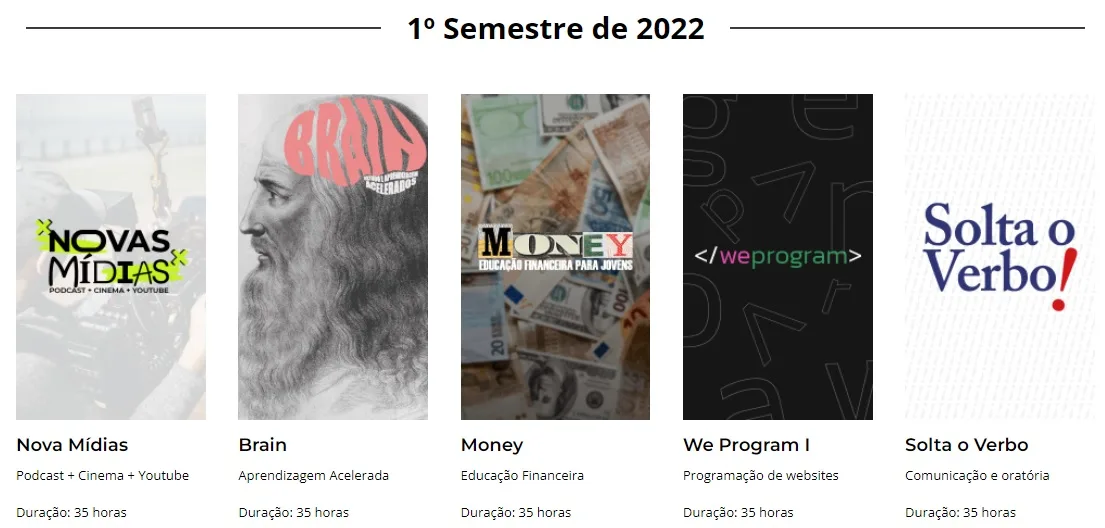
Another move of the edtech is to differentiate itself is around selecting important names to teach the courses. Thiago Godoy, head of financial education at Brazilian investment firm XP Investimentos, and Laura Weiss, storytelling specialist and audiovisual content strategist at ecommerce unicorn Olist, are some of the names that can be found on the platform. A few weeks ago, Brazilian TikTok influencer and comedian Gabriel Sampaio joined the team. He will teach an extra module in the New Media course.
Time to scale up
This year, when ICE Play officially launches its streaming platform, the company will be dedicated to gaining scale. The startup is carefully structuring a fundraising round to build a sales team to achieve this.
Currently, 1,200 students from 12 schools from the states of Minas Gerais, Espírito Santo, Goiás and Brasília use the platform. The startup expects to end 2022 with 70 client schools. ICE Play’s revenue comes from monthly subscriptions, with packages based on the size of the school – they charge from 30 Brazilian reais (approximately $6,50) to 50 Brazilian reais ($10,70) per student each month. The rating given by students to the courses delivered by the edtech is, on average, 4.4 out of 5.
“At the end of the day, our product is already well validated. However, we also want to generate more social impact and expand the service to the public network. Overcoming bureaucratic and technological barriers to get there is our dream and our goal”, said Gonçalves.
Hello investors, I thought the ICE Play idea was great. How about you?
(translation by Leandro Miguel Souza, editing by Angelica Mari)

